第5章
The next session came, and, contrary to custom, the bill came also.
Men's minds were then intent on other things. The first threatenings of a huge war hung heavily over the nation, and the question as to Hiram's heirs did not appear to interest very many people either in or out of the House. The bill, however, was read and reread, and in some undistinguished manner passed through its eleven stages without appeal or dissent. What would John Hiram have said in the matter, could he have predicted that some forty-five gentlemen would take on themselves to make a law altering the whole purport of the will, without in the least knowing at the moment of their making it, what it was that they were doing? It is however to be hoped that the under secretary for the Home Office knew, for to him had the matter been confided.
The bill, however, did pass, and at the time at which this history is supposed to commence, it had been ordained that there should be, as heretofore, twelve old men in Barchester Hospital, each with 1s 4d a day; that there should also be twelve old women, each with 1s 2d a day; that there should be a matron with a house and L 70 a year; a steward with L 150 a year, who should have the spiritual guidance of that appertaining to the male sex. The bishop, dean, and warden, were, as formerly, to appoint in turn the recipients of the charity, and the bishop was to appoint the officers. There was nothing said as to the wardenship being held by the precentor of the cathedral, nor a word as to Mr Harding's right to the situation.
It was not, however, till some months after the death of the old bishop, and almost immediately consequent on the installation of his successor, that notice was given that the reform was about to be carried out. The new law and the new bishop were among the earliest works of a new ministry, or rather of a ministry who, having for a while given place to their opponents, had then returned to power; and the death of Dr Grantly occurred, as we have seen, exactly at the period of change.
Poor Eleanor Bold! How well does that widow's cap become her, and the solemn gravity with which she devotes to her new duties. Poor Eleanor!
Poor Eleanor! I cannot say that with me John Bold was ever a favourite. I never thought him worthy of the wife he had won. But in her estimation he was most worthy. Hers was one of those feminine hearts which cling to a husband, not with idolatry, for worship can admit of no defect in its idol, but with the perfect tenacity of ivy. As the parasite plant will follow even the defects of the trunk which it embraces, so did Eleanor cling to and love the very faults of her husband.
She had once declared that whatever her father did should in her eyes be right. She then transferred her allegiance, and became ever ready to defend the worst failings of her lord and master.
And John Bold was a man to be loved by a woman; he was himself affectionate, he was confiding and manly; and that arrogance of thought, unsustained by first-rate abilities, that attempt at being better than his neighbours which jarred so painfully on the feelings of his acquaintances, did not injure him in the estimation of his wife.
Could she even have admitted that he had a fault, his early death would have blotted out the memory of it. She wept as for the loss of the most perfect treasure with which mortal woman had ever been endowed; for weeks after he was gone the idea of future happiness in this world was hateful to her; consolation, as it is called, was insupportable, and tears and sleep were her only relief.
But God tempers the wind to the shorn lamb. She knew that she had within her the living source of other cares. She knew that there was to be created for her another subject of weal or woe, of unutterable joy or despairing sorrow, as God in his mercy might vouchsafe to her. At first this did not augment her grief! To be the mother of a poor infant, orphaned before it was born, brought forth to the sorrows of an ever desolate hearth, nurtured amidst tears and wailing, and then turned adrift into the world without the aid of a father's care! There was at first no joy in this.